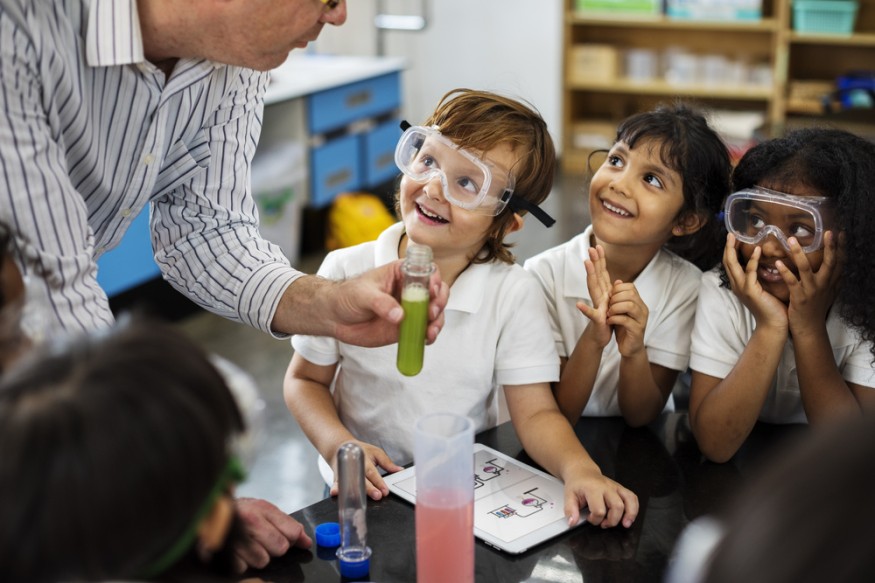
Teaching can be an enriching career, but it's not without challenges. Children can be challenging to manage alone, let alone a whole classroom full of them. It takes skill, experience and techniques to teach kids and manage their behaviour in the classroom simultaneously. You may have up to twenty kids, or more, all with different learning styles and preferences and their own unique challenges too. Being a successful teacher means teaching effectively while remaining calm, patient and empathetic towards your class. That's why it can take a Master of Education online to gain the appropriate qualification.
And teaching scientific topics can be tricky due to science's complicated and complex nature. As a teacher, you must learn ways to teach science that keeps kids engaged and learning. This helpful article will share some of them, so continue reading to learn more.
Explain Why Science is Important
One of the first lessons you'll need to teach your class is why science is essential. You know, your colleagues know, and lots of adults know, but your students might not. You'll already have a range of knowledge in the class, from kids who love science to those who are flat-out disinterested in the subject.
You can explain how scientific discoveries have assisted civilized society's cultural, technological and social development. Touch on spaces such as medicine, space travel and exploration, information technology and biology, such as developing cures for diseases. If you can explain why science is essential and why society needs scientists, you'll be a good way on your quest to create a passion for science in your students.
Learn Your Student's Preconceptions
Your pupils will come to their science class with various ideas about how the world works and how chemistry, biology and other aspects of science work. They will have learned things from siblings, parents, TV, YouTube, or other areas of their lives. This should be celebrated, as it shows that they are interested, curious and open to learning. However, some of these preconceived ideas will be wrong, and it's your job to support them to shift their thinking and replace it with scientifically accurate ideas. The first stage in doing this is learning what beliefs they already hold. Develop a quiz or an interactive activity to discover your student's preconceived ideas and beliefs.

Challenge Misconceptions
Learning is not always a linear process; sometimes, kids take steps backwards and forward when learning new topics. Often this is on the path to achieving mastery of concepts and ideas. Once you've identified your student's misconceptions and incorrect beliefs about science, you can tailor your teaching to address these. Remember always to provide evidence and information to explain new concepts and ideas.
Gamify Science Learning
Gamification is the process of turning a learning or doing process into a game. One way you can effectively teach science to school kids is to turn the teaching into a game. Research if existing board, card or video games impart scientific knowledge, principles or methods. Here are some ideas. If you can encourage playing games to educate the kids, you'll gain their trust and respect as you've made learning fun, which is all that kids, especially younger ones, want.
Encourage Debate
One way students can synthesize learning is through discussion and debate. You should hold a debate competition or structure formal debate sessions in your class. You can set the topic as an aspect of science, such as biology, chemistry, physics or astronomy. Allow your students time to research their arguments and positions, and ensure they back up their stances with evidence and knowledge. Learning how to formulate an argument and firm up your stance with evidence is excellent scientific learning.

Encourage Thinking Aloud
Role modeling your knowledge of scientific topics can help students to develop their metacognitive knowledge. You can explain and think aloud to develop ideas and arguments. Demonstrate how you approach learning a new topic, and vocalize your thoughts about the unknown, what you're uncertain about and what you're thinking. This will teach your students to workshop their learning by thinking aloud about theories and concepts to help them solidify their learning.
Develop Practical Experiments
Students love when science is hands-on. Develop some experiments using chemicals or other scientific resources. Get your students to create hypotheses and test these s in the experiments. This will be an exciting and enjoyable activity for the students, who'll get to develop their hands-on science skills. Then, once the experiment is complete, get them to write up the results. Were their hypotheses correct, or did the experiment show another outcome? The writing will assist them in cementing the learning from the practical experiment.
Teach Different Scientific Models
Scientific models, modeling, and how these are developed are essential to teaching science to students. You'll be teaching various models as part of your curriculum. But first, teach them how scientific models are created, drawing on historical examples. You might teach them how Newton discovered gravity and developed his model or touch on historical astronomers or chemists. If you can combine the history of scientific models with modern examples, you'll generate an interest in science in your class.
Set a Major Project for the Semester or Term
An excellent science teaching method is to set your students a task to complete a significant project for the semester or term (depending on where you are in the world). This will allow them to dive deep into a particular topic over an extended period. They must research their topic, design an experiment or model, and document their thinking, processes and findings. Ask them to develop a poster, infographic, or document outlining their project and its scientific findings.
You can encourage them to involve their community in the project and access resources within and outside the school. If your school hosts a science fair, this is the perfect place for them to demonstrate their learning.
Different Skill Levels? Consider Differentiation
If students in your class have different skill levels, intelligence capacities and learning styles, you should tailor your lessons with differentiation in mind. This teaching technique ensures all levels of learning and skill can become involved in the lesson. You can tailor different worksheets for students or set tasks depending on skill level, with adjustable difficulty. More work is involved, but a one-size-fits-all approach doesn't always work when teaching science.
A Science Summary
This informative article has shared how teachers can effectively teach scientific topics with various approaches, lessons and tasks to set your students. You should now feel confident about teaching science to your class.
© 2026 ScienceTimes.com All rights reserved. Do not reproduce without permission. The window to the world of Science Times.












